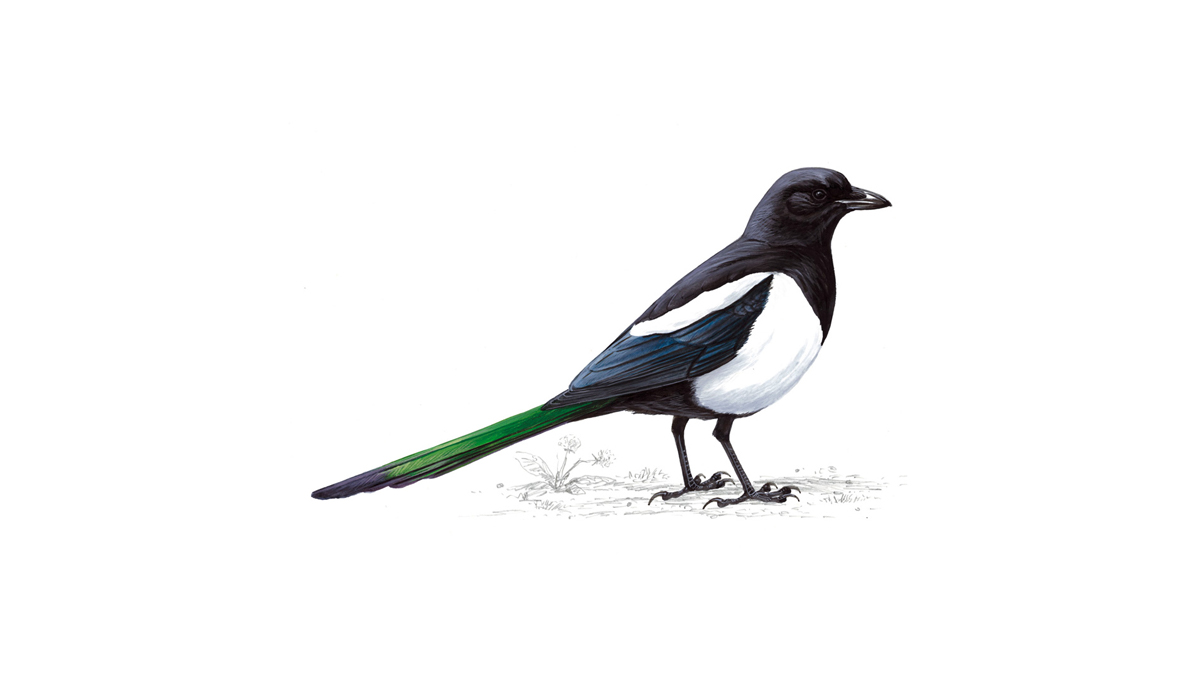
noun
- either of two corvine birds, Pica pica (black-billed magpie), of Eurasia and North America, or P. nuttalli (yellow-billed magpie), of California, having long, graduated tails, black-and-white plumage, and noisy, mischievous habits.
- any of several related corvine birds.
- any of several black-and-white birds not related to the true magpies, as Gymnorhina tibicen, of Australia.
- an incessantly talkative person; noisy chatterer; chatterbox.
- a person who collects or hoards things, especially indiscriminately.
- Western U.S. a black-and-white cow or steer, as a Holstein.
noun
- any of various passerine birds of the genus Pica, esp P. pica, having a black-and-white plumage, long tail, and a chattering call: family Corvidae (crows, etc)
- any of various similar birds of the Australian family CracticidaeSee also butcherbird (def. 2)
- any of various other similar or related birds
- (often capital) a variety of domestic fancy pigeon typically having black-and-white markings
- British a person who hoards small objects
- a person who chatters
-
- the outmost ring but one on a target
- a shot that hits this ring
n.the common European bird, known for its chattering, c.1600, earlier simply pie (early 13c.); first element from Mag, nickname for Margaret, long used in proverbial and slang English for qualities associated generally with women, especially in this case “idle chattering” (cf. Magge tales “tall tales, nonsense,” early 15c.; also French margot “magpie,” from Margot, pet form of Marguerite). Second element, pie, is the earlier name of the bird, from Old French pie, from Latin pica “magpie,” fem. of picus “woodpecker,” from PIE root *(s)peik- “woodpecker, magpie” (cf. Umbrian peica “magpie,” Sanskrit pikah “Indian cuckoo,” Old Norse spætr, German Specht “woodpecker”); possibly from PIE root *pi-, denoting pointedness, of the beak, perhaps, but the magpie also has a long, pointed tail. The birds are proverbial for pilfering and hoarding, can be taught to speak, and have been regarded since the Middle Ages as ill omens. Whan pyes chatter vpon a house it is a sygne of ryghte euyll tydynges. [1507] Divination by number of magpies is attested from c.1780 in Lincolnshire; the rhyme varies from place to place, the only consistency being that one is bad, two are good.
 Liberal Dictionary English Dictionary
Liberal Dictionary English Dictionary